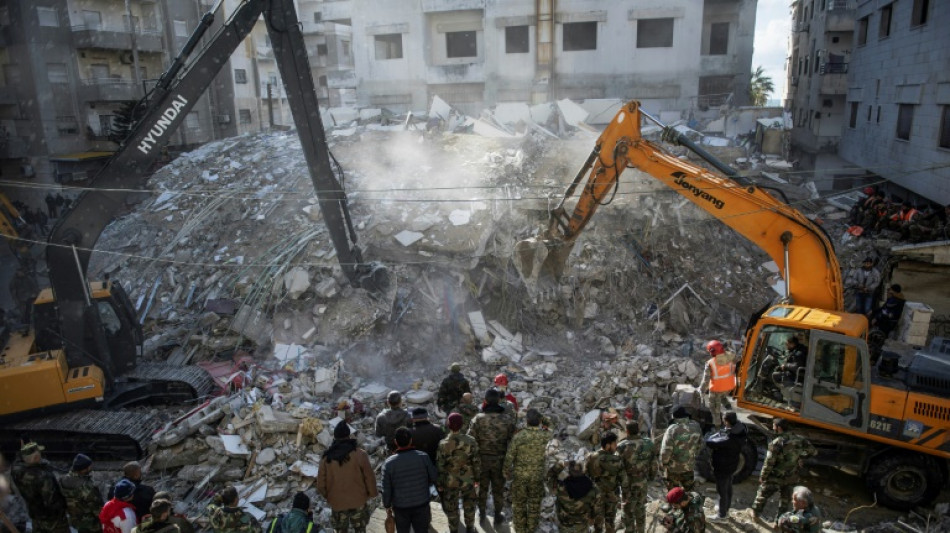
-
 Klopp congratulates Liverpool on Premier League triumph
Klopp congratulates Liverpool on Premier League triumph
-
Violence-weary Trinidadians vote in general election
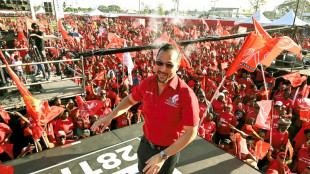
-
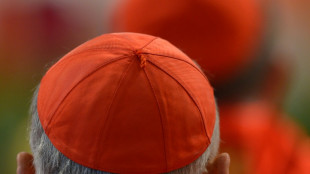 Abuse scandal in focus in search for new pope
Abuse scandal in focus in search for new pope
-
Prince William and Kate mark wedding anniversary in Scotland

-
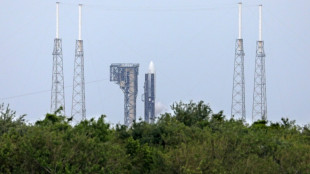 Amazon set for launch of Starlink-rival satellites
Amazon set for launch of Starlink-rival satellites
-
London mayor Sadiq Khan targets Olympic history for city
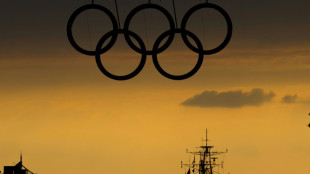
-
 Stock markets diverge amid trade hopes, ahead of earnings
Stock markets diverge amid trade hopes, ahead of earnings
-
Canada votes as Trump renews US takeover push

-
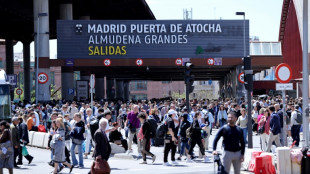 Massive blackout hits all of Spain and Portugal
Massive blackout hits all of Spain and Portugal
-
Conclave starts May 7, cardinals say new pope must tackle abuse
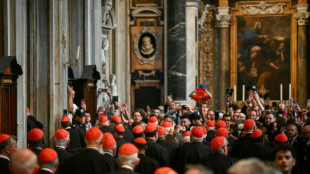
-
 BRICS ministers meet in Brazil over Trump trade policies
BRICS ministers meet in Brazil over Trump trade policies
-
Trump escalates immigration crackdown to mark 100 days

-
 Outkast, White Stripes, Cyndi Lauper among Rock Hall inductees
Outkast, White Stripes, Cyndi Lauper among Rock Hall inductees
-
Putin orders three-day truce in May but Ukraine asks 'Why wait?'

-
 Eubank Jr discharged from hospital following boxing grudge match
Eubank Jr discharged from hospital following boxing grudge match
-
China deploys army of fake NGOs at UN to intimidate critics: media probe
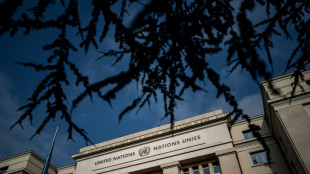
-
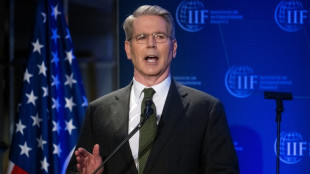 Empty shelves? US Treasury secretary not concerned 'at present'
Empty shelves? US Treasury secretary not concerned 'at present'
-
Slot told Liverpool they could win the league at season start: Konate
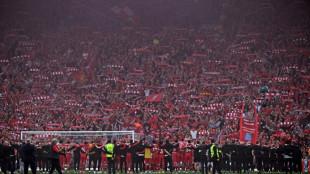
-
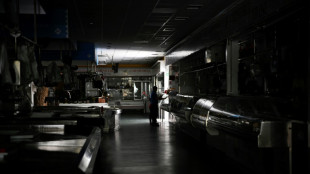 Spain brought to a halt by huge blackout
Spain brought to a halt by huge blackout
-
Stock markets mostly higher amid trade talk hopes

-
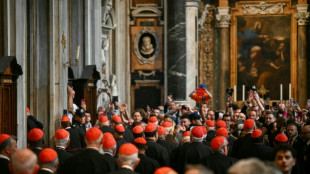 Conclave starts May 7, with cardinals saying new pope must tackle abuse
Conclave starts May 7, with cardinals saying new pope must tackle abuse
-
Massive blackout hits Spain and Portugal
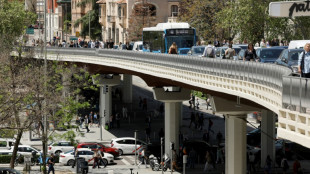
-
 Ruediger 'must show respect to others' says Germany boss Voeller
Ruediger 'must show respect to others' says Germany boss Voeller
-
As Canada votes, Trump pushes US takeover plan

-
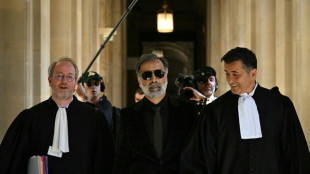 Ten on trial in Paris over 2016 gunpoint robbery of Kim Kardashian
Ten on trial in Paris over 2016 gunpoint robbery of Kim Kardashian
-
African players in Europe: Salah scores, takes selfies as Reds seal title

-
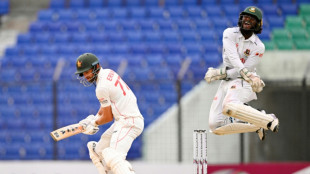 Bangladesh spinner Taijul's 5 wickets trigger Zimbabwe collapse in 2nd Test
Bangladesh spinner Taijul's 5 wickets trigger Zimbabwe collapse in 2nd Test
-
French mosque murder suspect, 21, surrenders in Italy
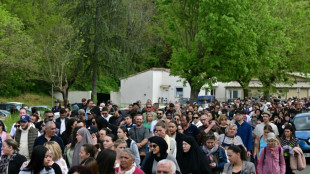
-
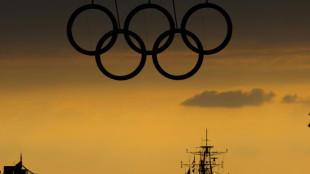 Mayor Khan keen for London to make Olympics history
Mayor Khan keen for London to make Olympics history
-
Iranian president visits Azerbaijan as ties warm
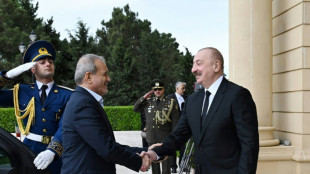
-
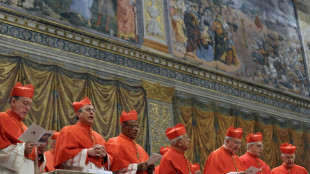 What we know ahead of the conclave
What we know ahead of the conclave
-
Jannik Sinner launches foundation supporting children

-
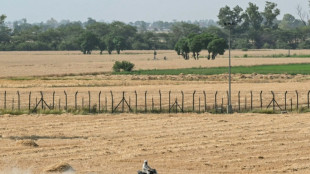 Villagers on India's border with Pakistan fear war
Villagers on India's border with Pakistan fear war
-
Putin announces surprise Ukraine truce for May 8-10
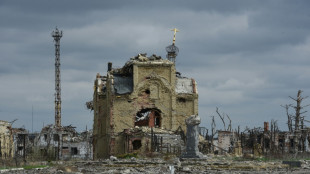
-
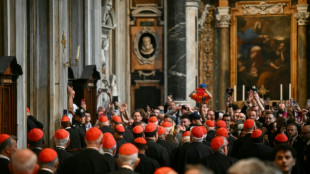 Conclave to elect new pope starts May 7
Conclave to elect new pope starts May 7
-
Stock markets mostly rise amid trade talk hopes

-
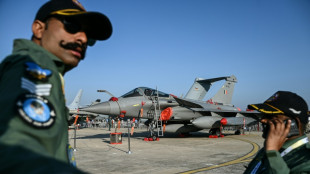 India says signs deal with France for 26 Rafale fighter jets
India says signs deal with France for 26 Rafale fighter jets
-
Trump's deep-sea mining order violates global norms: France

-
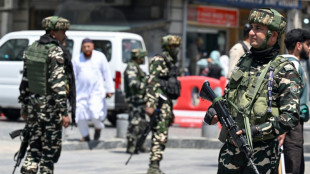 India Kashmir crackdown sparks anger as Pakistan tensions escalate
India Kashmir crackdown sparks anger as Pakistan tensions escalate
-
Russia says claims over annexed Ukraine regions key to peace
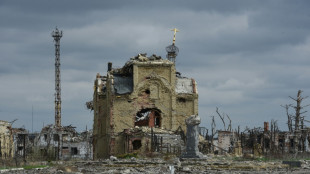
-
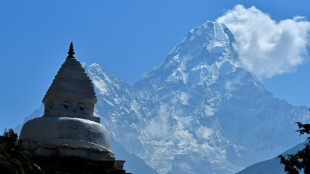 Austrian climber dies on Nepal mountain
Austrian climber dies on Nepal mountain
-
Fires rage 2 days after Iran port blast killed 46

-
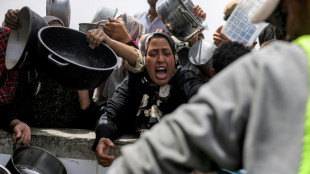 Palestinian official tells ICJ Israel using aid blockage as 'weapon of war'
Palestinian official tells ICJ Israel using aid blockage as 'weapon of war'
-
France arrests 25 in police raids after prison attacks
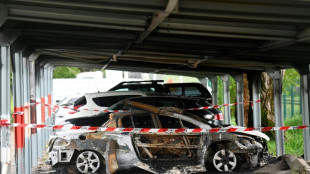
-
 Kim Kardashian's next star turn is in a Paris courtroom
Kim Kardashian's next star turn is in a Paris courtroom
-
Syria group says military chief arrested in UAE
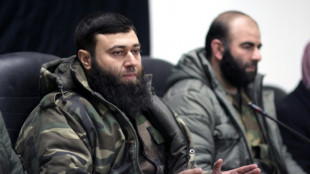
-
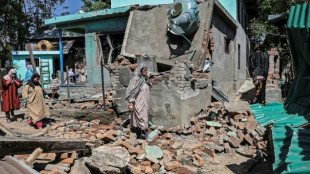 Anger in Indian Kashmir at demolitions and detentions
Anger in Indian Kashmir at demolitions and detentions
-
Italy bank merger wave heats up as Mediobanca eyes Banca Generali

-
 Putin critic Johann Wadephul, Germany's incoming foreign minister
Putin critic Johann Wadephul, Germany's incoming foreign minister
-
Cardinals expected to pick conclave date to elect new pope
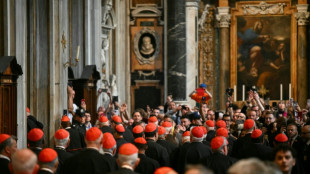

Quake-hit Syria city buries its dead on farmland
In Syria's coastal city of Jableh, Mohammed Daya has turned his farmland into a makeshift graveyard, with cemeteries overwhelmed as more bodies are pulled from the rubble after Monday's devastating earthquake.
The 7.8-magnitude quake struck near the Turkish city of Gaziantep, about 40 kilometres (25 miles) from the Syrian border, killing more than 22,000 people, including at least 3,377 in the war-torn Arab country.
"We could not help the living, but at least we should honour the dead," Daya told AFP from his farm-turned-cemetery, where dozens of people were hard at work digging graves in fields where tomatoes and peppers once grew.
The 47-year-old said he gave away most of his farmland, which he had planned to sell later for construction, so the dead could be laid to rest.
Sixteen bodies were already buried in the field and he said he was ready to give away more land if needed.
"I never expected this land would one day become a cemetery," he said, his eyes puffy and red from crying.
Relatives of those who lost their lives wrote the names of the dead by hand on nearby cement blocks used as makeshift tombstones.
Obituaries were plastered everywhere on the walls of the city.
- 'Death has come again' -
Jableh is located in mostly government-controlled Latakia, a province that is one of the war-ravaged country's worst impacted by the tremor.
The earthquake killed more than 500 people and destroyed 100 buildings in the province alone, authorities said.
But there is little hope that rescuers, who have already scoured 60 percent of affected sites in the province, will find anyone alive under the flattened buildings.
Experts say more than 90 percent of survivors are rescued within the first three days of emergency operations after an earthquake, on average.
Near the makeshift cemetery, many have been sleeping outside in the cold and toiling alongside rescuers with their bare hands, pots and pans to sift through the debris in hopes of finding their loved ones -- dead or alive.
In the neighbourhood of Rihawi, dozens of families anxiously waited for news of relatives still trapped under a crumbled structure, as bulldozers lifted concrete slabs.
Standing in the middle of the destruction, Adam Shaabo waited for a family member to be pulled out.
"I can't forget their faces," he said, recalling their lifeless, crushed bodies.
Jableh has been relatively spared the worst of Syria's almost 12-year civil war, but it has witnessed violent attacks and its residents have been killed in action, mostly alongside government forces.
"We thought we had bid farewell to big funerals," he said, "but death has come to Jableh again."
- 'Dying breath' -
Syrian first responders, as well as rescuers from Lebanon and Russia, have been rummaging in the rubble in a losing race against time.
Moscow is one of Damascus' main allies, and has two military bases in Syria: the airport in Hmeimim five kilometres (three miles) from Jableh; and the naval port of Tartus, roughly 60 kilometres to the south.
Lebanese rescuers pulled out a corpse from under slabs of concrete as relatives dashed to them, crying out as they recognised a deceased loved one.
"We are using primitive methods; we yell out for any survivors and wait for a response," said one of the Lebanese, Ali Safieddine.
"The building crumbled like a biscuit."
In one neighbourhood, residents took shifts guarding abandoned, damaged buildings, while others were busy distributing bread to shelters.
Nearby, rescuer Jalal Daoud dug in the wreckage hoping to catch survivors in their "very last hours", he told AFP.
"We are trying to work quickly... to catch the living before their last dying breath."
L.Mason--AMWN